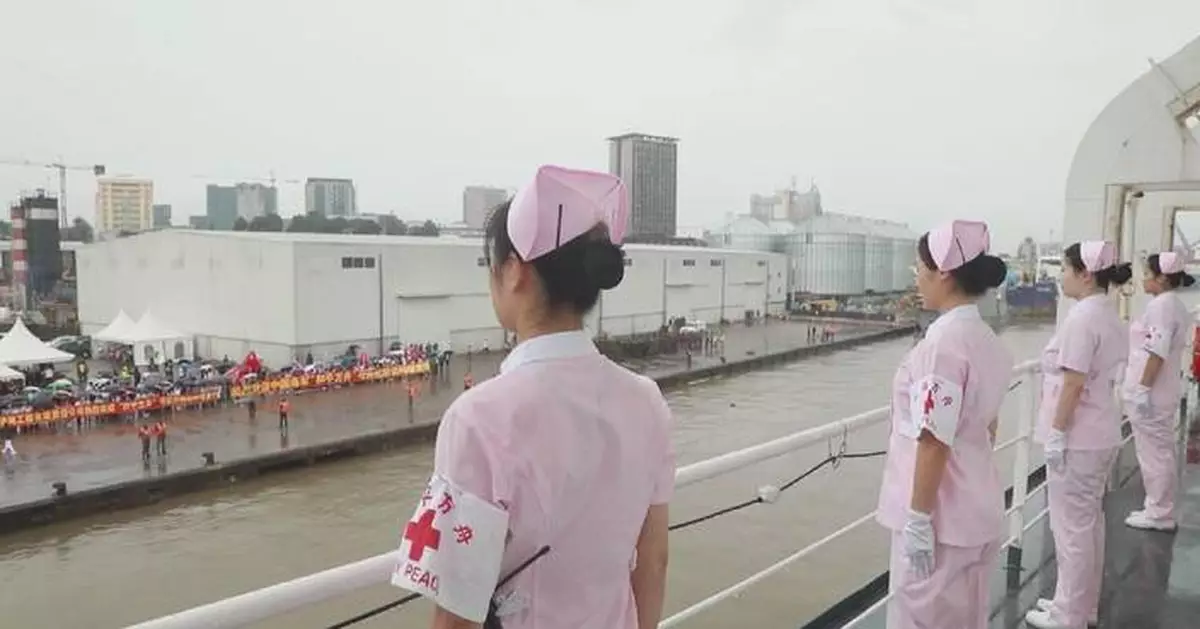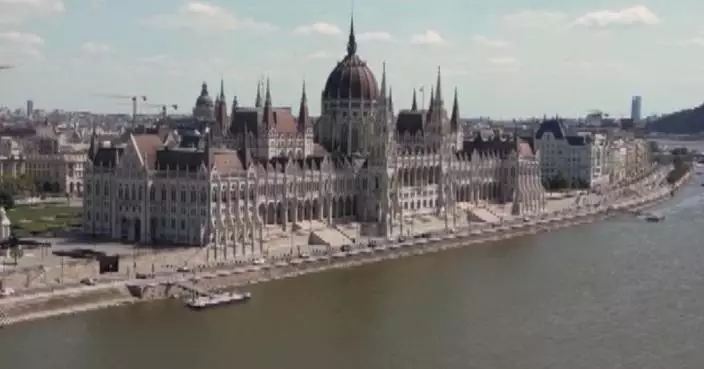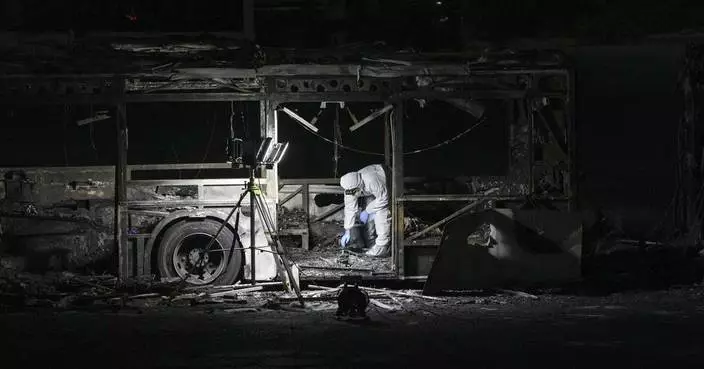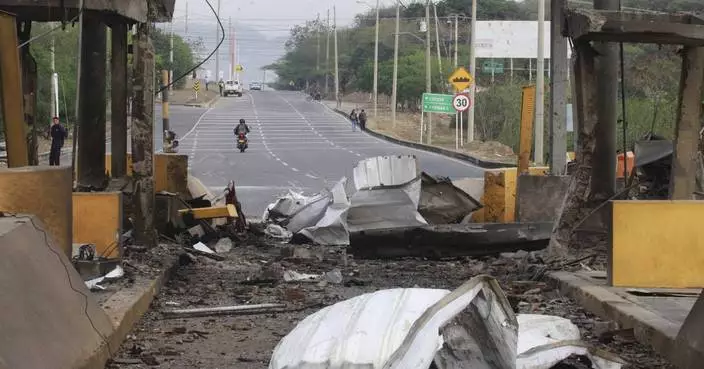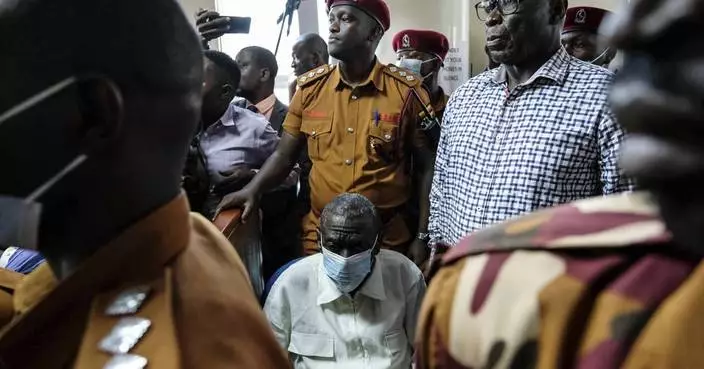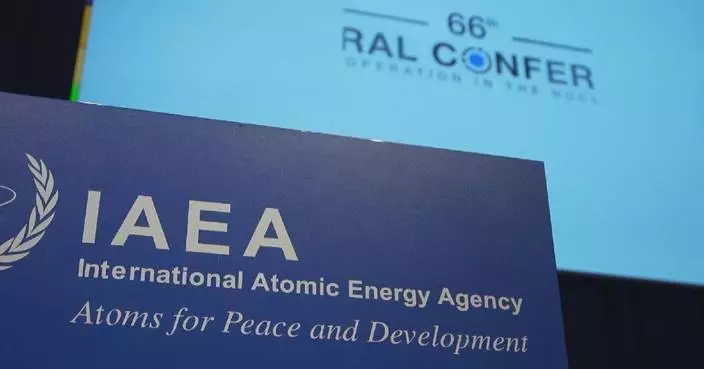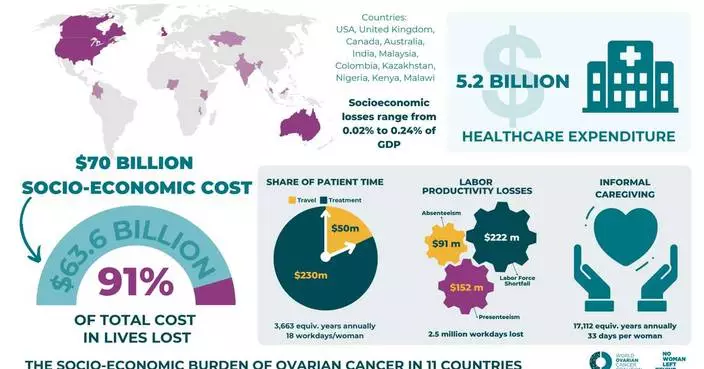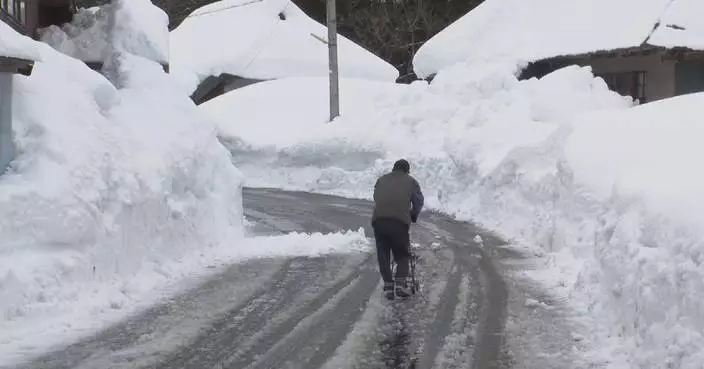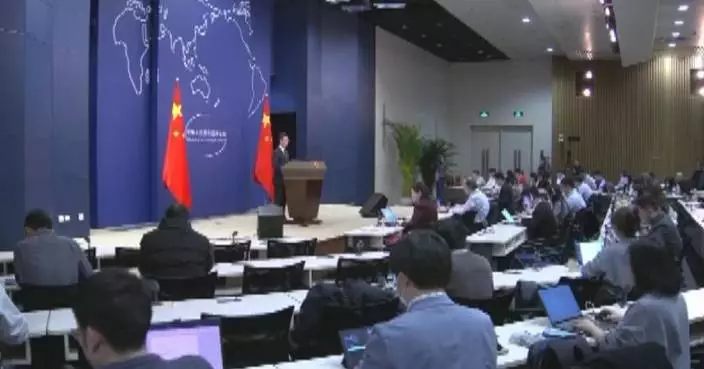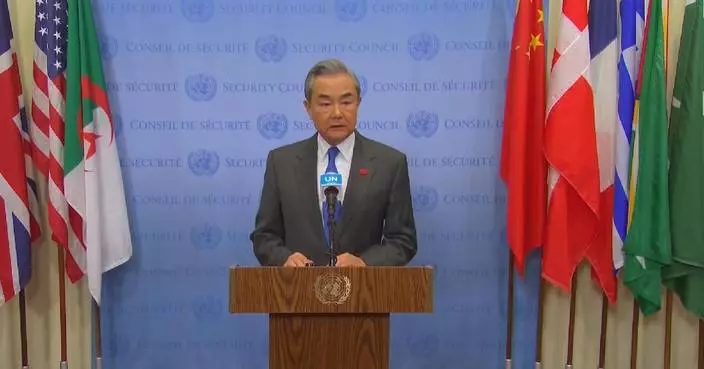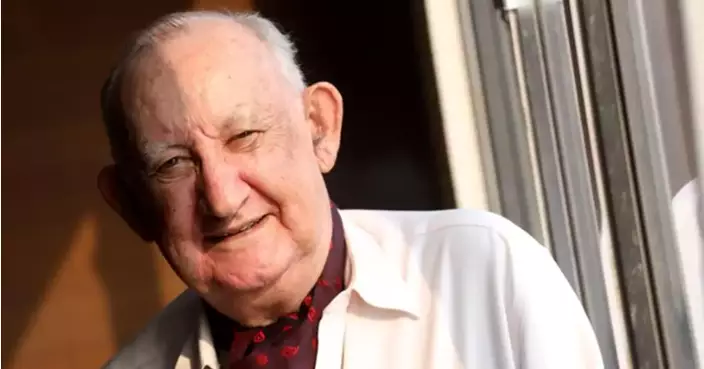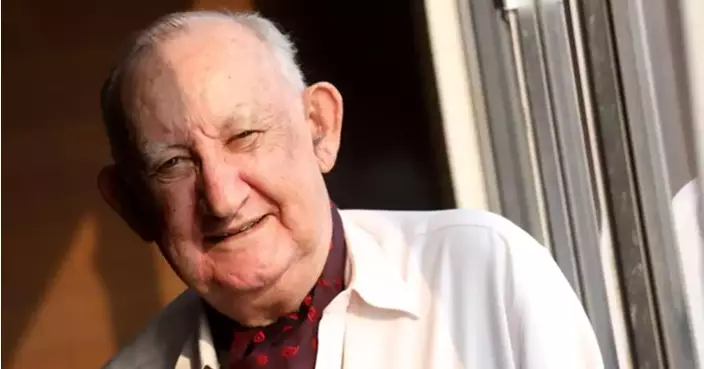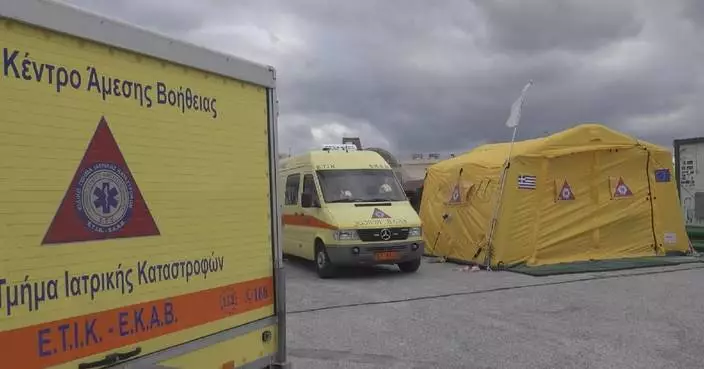The Chinese People's Liberation Army (PLA) Navy hospital ship "Peace Ark", which is on the Mission Harmony-2024, arrived at the port of Douala in Cameroon on Monday to conduct a seven-day visit and provide medical service to local residents.
It marked the hospital ship's first visit to the central African country.
The Cameroonian government held a grand welcome ceremony at the dock of the hospital ship, with the attendance of Cameroonian military and political officials, local residents, staff of the Chinese embassy in Cameroon, representatives of overseas Chinese and Chinese-funded institutions in Cameroon.
The hospital ship will offer diagnosis and treatment services on its main platform while dispatching expert and medical teams to local hospitals, military bases, communities, and government institutions to conduct activities such as joint medical treatment, academic exchanges and emergency skills training.
The hospital ship conducted a joint training with two patrol ships from Cameroon's navy in the waters off the port of Douala on Sunday.
The training testified each other's command, communication and coordination capabilities and laid solid foundation for strengthening military cooperation and exchanges between the two sides.
The "Peace Ark" set sail from a military port in Zhoushan in east China's Zhejiang Province in mid-June for Mission Harmony-2024.
During the mission, the ship will visit 13 countries and make port calls to France and Greece.
This is the 10th Mission Harmony for "Peace Ark" since its commissioning in 2008.
There are over 100 personnel on board the maritime hospital, featuring 17 clinical departments and 5 auxiliary diagnostic departments.
The "Peace Ark" is the first domestically designed and constructed standard ocean-going hospital ship in China.
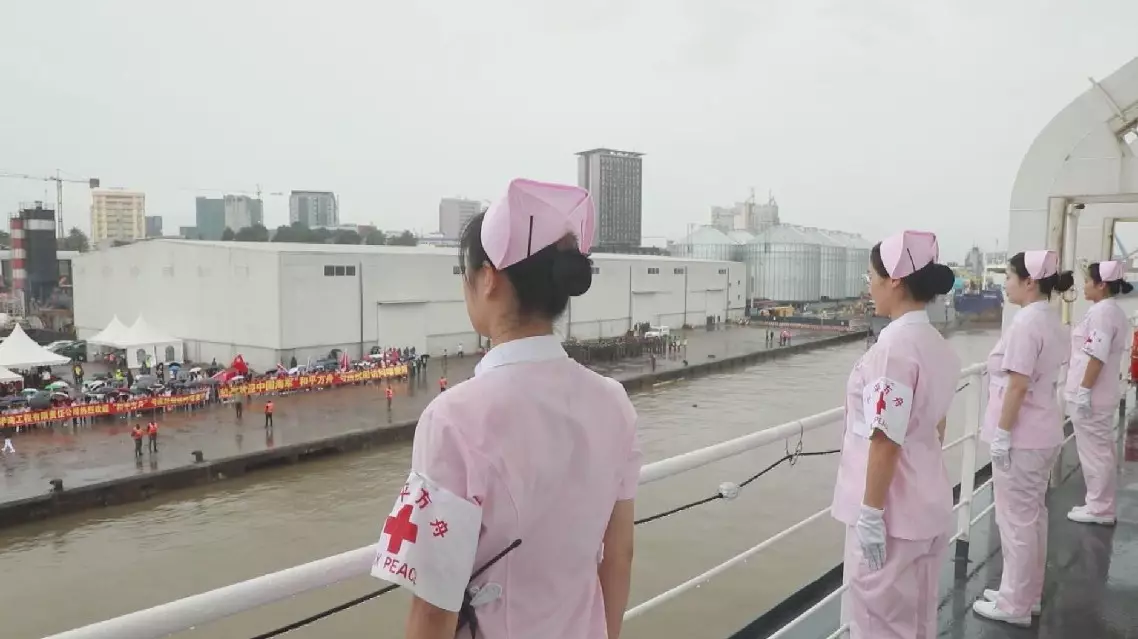
China’s hospital ship “Peace Ark” pays maiden visit to Cameroon
After more than a year of displacement, a Palestinian woman and her family are finally able to return to their hometown in northern Gaza, only to find their home reduced to ruins.
Um Basil Al-Tali once lived in the Jabalia city in northern Gaza. But when her home was destroyed by Israeli airstrikes, she was forced to leave, embarking on a grueling 15-month journey of displacement.
She recalled the horrifying moment when the bombings began -- her house collapsed, and when she rushed to the hospital, she found there was no room left. With no other option, she had to flee her homeland.
"After my neighbor's house was bombed twice, all the rubbles fell on our home. My son, who works as a paramedic, took me in an ambulance, even though I was determined to stay in Jabalia. We managed to get to the Red Crescent Hospital, but they did not have space for us. So we walked for over three kilometers until we reached the Mawasi area," Um Basil recalled.
According to the United Nations, more than 90 percent of Gaza's housing units have been damaged or destroyed over the past 15 months.
Um Basil is one of the thousands who have lost their homes, and now living in the ruins.
"After the ceasefire, I was told that my home in northern Gaza had been destroyed. I responded by saying that I would live in the ruins. However, when I reached my neighborhood, I could no longer recognize it. Even my son Aboud asked me where our house was. We walked and searched, until we finally found our house," she said.
Having no roof overhead is just one of the problems facing the people like Um Basil, as the area where they live also suffers from an extreme scarcity of water.
According Oxfam, a UK-based charity, more than 80 percent of water and sanitation infrastructure across the Gaza Strip has been partially or entirely destroyed.
"My son Aboud goes out at 7:00 every morning to search for water. Sometimes he comes back empty handed and has to go out again in the afternoon or in the evening to search again. Drinking water, or even salt water, is extremely hard to find," she shared.
In addition to the scarcity of essential resources, the winter rains destroyed their temporary shelter. Despite all of this, Um Basil still considers it their home.
"We are all living in a room, but it has been flooded because of the rain. Our clothes and blankets got wet, so I have been trying to dry them in the sun. It is cold here and all that is left from our house are these stones, but it is still my home and shelter," she said.
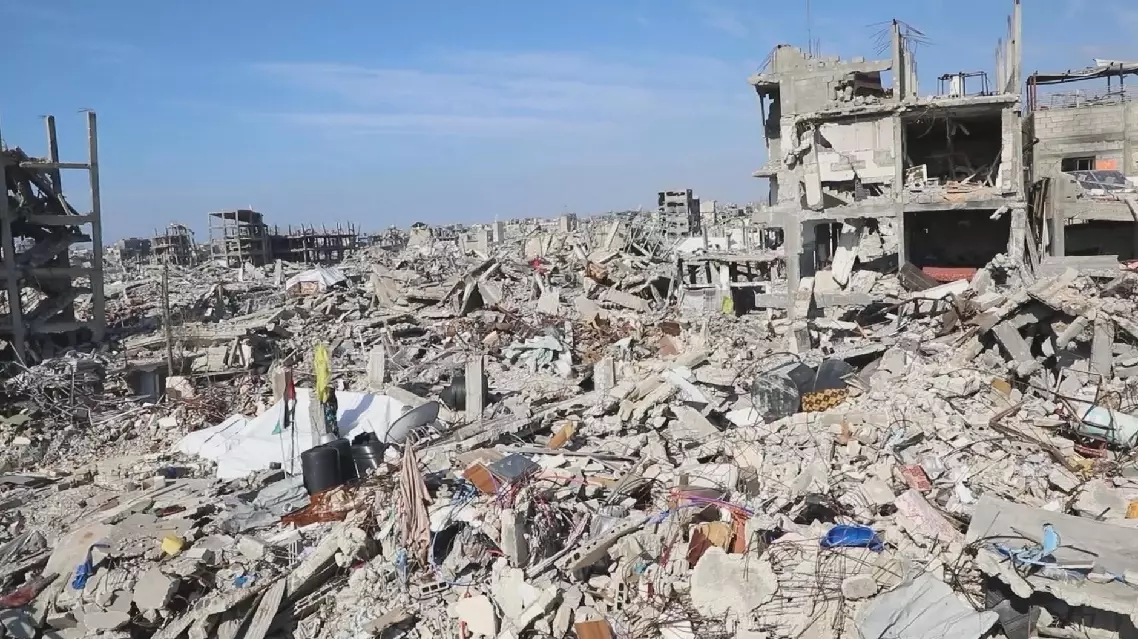
Palestinian family in Gaza returns only to find home in ruins



